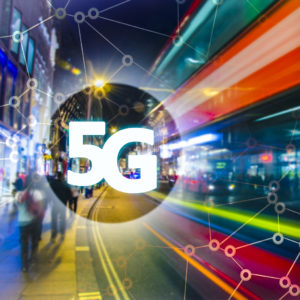The Federal Communications Commission thinks the T-Mobile/Sprint merger will help bridge the digital divide and accelerate 5G deployment, which is why Chairman Ajit Pai announced his approval of the merger and recommends the transaction move forward.
According to a senior FCC official, the FCC believes the merger will help expand rural broadband and help the U.S. lead in the 5G race. The official also said T-Mobile and Sprint reached a series of agreements with the FCC regarding these initiatives.
First, Sprint promised to sell Boost Mobile to boost competition, and if T-Mobile and Sprint successfully merge, they’ve committed not to raise prices for three years; provide 5G to 97 percent of the American population within three years and 99 percent within six years; provide 5G to 85 percent of rural Americans within three years and 90 percent within six years. T-Mobile and Sprint also guaranteed the FCC that 90 percent of Americans will have access to speeds of at least 100 Mbps, and 99 percent to speeds of at least 50 Mbps.
A senior FCC official also said if T-Mobile and Sprint miss those benchmarks by more than 20 percent, they’ll shell out at least $800 million to the Department of the Treasury.
Acknowledging the unreliability of broadband maps, the FCC also said T-Mobile and Sprint would pay for dry tests at the end of years three and six, to be overseen by a third party, to ensure T-Mobile and Sprint keep their promises.
The commitment not to raise prices for three years and the sale of Boost Mobile are, according to the FCC, supposed to ensure this merger is “pro-competitive.”
Sascha Meinrath, the Palmer Chair in Telecommunications for Pennsylvania State University, is working on his own broadband map to more accurately gauge which parts of rural America have broadband access and which do not, and he thinks T-Mobile’s and Sprint’s promises to provide 5G to rural areas are “absurd.”
“It’s absurd to think that a company selling micro-coverage will solve the rural broadband problem,” Meinrath told InsideSources, because 5G is only as good as the number of nodes of connectivity. In other words, without more fiber, deploying small cells to rural America won’t do a whole lot. “This is not a functional equivalent to wireline connectivity,” he said.
Meinrath also doesn’t think the penalties are that steep.
“$800 million is nothing for these companies, especially when you can charge that back to the consumer,” he said. “Funding direct competitors (as a penalty), now that would be meaningful.”
The Rural Wireless Association also opposes the merger, citing the same concerns as Meinrath. The Competitive Enterprise Institute praised the merger in an emailed statement to InsideSources, believing it will accelerate 5G deployment as Pai hopes.
“I’m also pleased that the companies have committed to a robust buildout of their mid-band spectrum holdings,” Pai said in a tweeted statement on Monday. “Moreover, the companies have offered specific commitments regarding the rollout of an in-home broadband product, including to rural households. This would give many Americans another option for home broadband service.”
Commissioner Brendan Carr, another 5G crusader, also tweeted a statement this morning announcing his support for the T-Mobile/Sprint merger.
Still, Pai thinks the merger will address two of his FCC’s biggest goals: bridging the digital divide and winning the 5G race.
“The commitments made today by T-Mobile and Sprint would substantially advance each of these critical objectives,” he said. “The construction of this network and the delivery of such high-speed wireless services to the vast majority of Americans would substantially benefit consumers and our country as a whole.”

